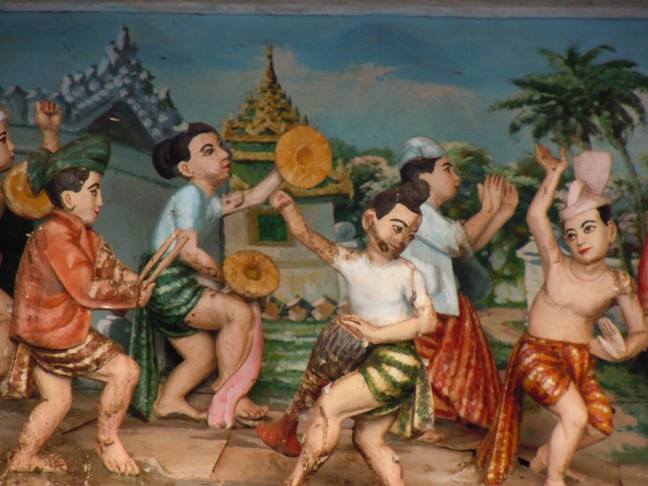In recent days, news from Burma has come thick-and-fast.
In the Karen State, a delegation of Karen National Union heavies agreed a ceasefire with the Burmese government. Then, hundreds of political prisoners — including big names like Min Ko Naing, U Gambira and Khun Tun Oo — were released. Some useful commentary on those releases is available here.
O, and former Prime Minister and Military Intelligence chief Khin Nyunt is also back on the streets. He has some interesting things to say.
In response, the United States government, in what is surely part of a long-planned package of re-engagement incentives, announced that they want to upgrade diplomatic relations to Ambassador level. That may be just the beginning of the international re-positioning that will follow these recent developments.
And if such incremental changes continue then the vocabulary, and conceptual apparatus, for describing Burmese society will likely need some rapid overhaul.
In the meantime there are, of course, all the inevitable questions about whether these positive steps are meaningful or permanent. There is, I suppose, always the chance that they could be reversed, especially if the current crop of relatively moderate leaders fail to hold on to power.
But right now my very strong impression is that we need to give Burma’s decision-makers the full benefit of the doubt. Somebody, somewhere is doing their best to demonstrate goodwill. They are hoping that the world takes notice.
Burma’s leadership will, however, need to get a quick and peaceful resolution to the war in Kachin State. Getting a deal done before the 51st anniversary of Kachin Revolution Day on 5 February 2012 would be highly symbolic; that could be a good deadline for President Thein Sein to bear in mind.
On the list of priorities, peace with the Kachin Independence Army must now be right at the top.
 Facebook
Facebook  Twitter
Twitter  Soundcloud
Soundcloud  Youtube
Youtube  Rss
Rss 